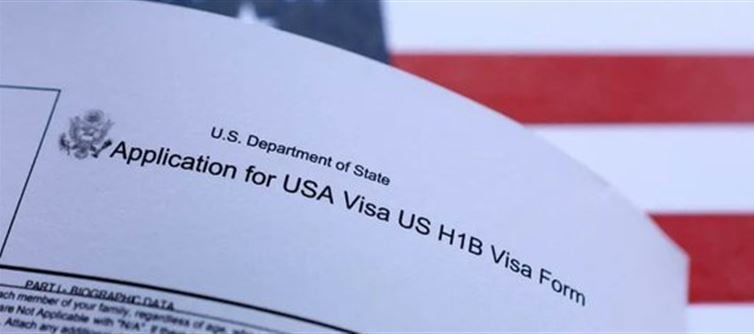
America’s Immigration Reset: Why Ending Work-Permit Extensions May Be the Start of a Bigger Economic Correction”
Behind the outrage lies a strategic shift: the U.S. isn’t just targeting foreign workers — it’s quietly rebooting its tech dependency model.
The U.S. decision to end automatic work-permit extensions for H-4 and F-1 holders appears cruel at first glance — but it may be part of a deeper structural reset in how America views foreign labor and domestic innovation.
For decades, the U.S. tech sector has leaned heavily on H-1B visa talent, especially from India. Spouses on H-4 visas, who were granted work permits (EADs), became an invisible but vital part of this ecosystem — filling mid-level technical, administrative, and educational roles while the primary H-1B workers powered engineering and R&D.
By freezing automatic EAD renewals, Washington may be signaling a policy correction rather than an emotional reaction. The U.S. labor market, post-AI boom, is under pressure to reskill domestic workers and reduce perceived dependency on foreign professionals — especially as political narratives around “American jobs for Americans” heat up ahead of election cycles.
However, this “reset” comes at a cost. The U.S. immigration backlog for indians already exceeds 1.2 million applicants, with some facing century-long waits for green cards. Removing automatic EAD extensions further erodes faith in the system, pushing many high-skilled workers toward Canada, the U.K., and Australia — countries that are actively competing for the same talent pool with faster pathways to citizenship.
Ironically, in trying to “protect” American jobs, the U.S. risks hollowing out its own innovation base. The AI, semiconductor, and biotech sectors — all talent-thirsty — depend on this global workforce.
This move could trigger a brain-drain reversal, where indian professionals who once sought U.S. shores now build companies back home in Bengaluru or Hyderabad, with rising startup ecosystems and government incentives.
The question isn’t whether the rule is harsh — it is — but whether it marks the beginning of America’s quiet exit from being the world’s talent magnet.
⚙️ In a globalized tech race, talent flow is the new currency — and America just imposed a silent tax on it.
#USImmigrationShift #BrainDrainReversal #PolicyReset #TechTalentWar
H-4 EAD, H-1B visa, F-1 student, work permit extension, US immigration, indian tech workers, American Dream, immigration reform, US policy, visa crisis
#H4EAD #AmericanDreamCrisis #VisaShock #ImmigrationPolicy #TechTalentCrisis #USImmigrationShift #BrainDrainReversal
“They built America’s tech empire — now the system just turned against them.”
“It’s not a layoff — it’s a silent deportation of dreams.”




 click and follow Indiaherald WhatsApp channel
click and follow Indiaherald WhatsApp channel